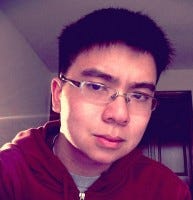Nascence: Reflecting on Game School and Change
Kevin Wong reflects on entering the USC Interactive Media Division at this particular point of time in the industry.

This article was originally posted to my blog at kevinjameswong.com
I try not to have second thoughts about entering this industry. We're riding the wave of Ludus Florentis, the massive sea change, maybe even movement, that James Portnow predicted three years ago, a term that I'll refer to a lot in this article.
While as a player of games, I welcome the earthquake of creativity that is shaking up the industry right now, I remain concerned about what that could mean for my career. Right now, more people than ever are entering the game industry, and the old guards of yesterday can not possibly employ all that talent that's flooding out of game schools. Independent developers like the ones I admire seldom look to hire or expand, and the few ones that do rarely seek applicants in design. As the bar to entry lowers, the bar to be competitive inches higher.
 Chelsea Howe's diagram of the factors that contribute to "Ludus Florentis", a phrase that I'll use here to describe what's going on right now in gaming.
Chelsea Howe's diagram of the factors that contribute to "Ludus Florentis", a phrase that I'll use here to describe what's going on right now in gaming.
To be competitive in this world means to make necessary sacrifices, everyone is going to give up a little bit of themselves. I personally, ended my political outspokenness and stopped distance running, two facets of myself that I thought important to who I was. In retrospect, the former won't be missed and the latter was mooted anyway by life in Los Angeles.
Nonetheless, anyone entering game school can expect to work harder than they ever have in their life. They must expect movement, and must be ready to relocate to get the necessary experience that would fulfill their goals. And challenge, those entering this industry must be ready to confront the stark reality of crunch time, demographic homogenity, limited compensation, family separation, the crossover of social and professional life, and a brief career likely lasting less than a decade.
But that's barely an issue.
Maybe I'm being overly idealistic or something like it. To be part of this snapshot of time means that I'm part of a greater whole, and only with the combined creativity of game developers everywhere will we unlock a grand future. Being part of the microcosm of USC Games means that I am intrinsically part of this movement, and that the person I form myself to be in this moment in time will determine the direction of this movement and what the medium will become in the future.
What happened over the course of my first year at game school has sent me on a journey of my own (sorry), while I'm far from that designer that I want to be, I've already met strange new people from walks of life radically different from my own, I've traveled to the conventions and met the visionaries of the medium that I only dreamed of years ago, I've joined and worked on projects continually pushing the boundaries of what games could be and what they can do for the world.
And Things Got Strange.
By stepping into unknown territory, I opened myself to the risk of failure. But the finite nature of our existence, and the infinite nature of the unknown, moots success or failure in any professional domain. What really matters are our relationships to the people who are closest to us with whom we share our brief journey through this wilderness. ~ Jeff Watson
I worked on the next iteration of my 2012 game of the year, Reality Ends Here. A message went out that Jeff Watson was opening up an experimental class to design future iterations of the ARG, having received a grant to expand the game that had changed many a freshman's life, connecting them to the friends they would paint the future with. I joined the team as a narrative designer, and was in charge of designing an overarching environmental narrative to create the atmosphere of subversive, self-motivated creativity that the future of entertainment demands from its practitioners.
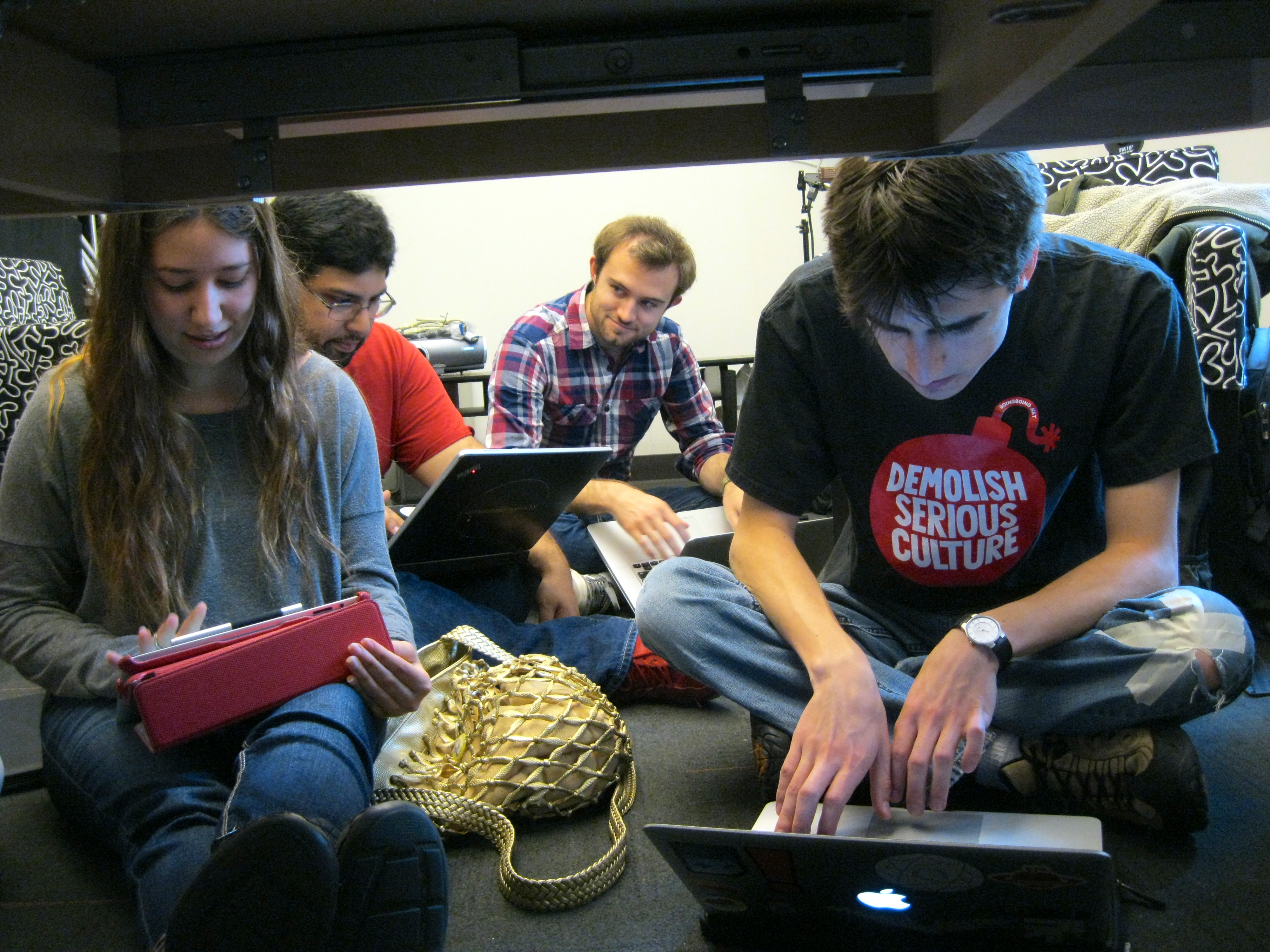 A typical Reality Ends Here dev meeting.
A typical Reality Ends Here dev meeting.
Most of the details about what exactly we did to next year's iteration of Reality Ends Here has to be kept under wraps, because, hey, spoilers, but I will say that working on it reminded me of the necessary constraints that time, manpower, and budget placed on these projects. When we began designing the narrative, we had this grand vision of an epic participatory story involving immersive theater, hundreds of audio-logs, story-rich spaces, fictional characters, and a simulated conflict. We ended up cutting out most of that content to only that which would maintain our laser focus on creating the desirable atmosphere of discovery and excitement that we want to provide to our players. Film school is a rabbit hole taking those who choose to explore it to strange lands of magic and adventure, we want to reinforce that aesthetic with this narrative.
I have great hope for Reality Ends Here. We made a huge number of fundamental changes to the game and expect to see the payoff in the quality of students that partake in this school. And given my knowledge of some of the plans we have for the game, Reality Ends Here may end up making some great difference in the world as a whole. Keep an eye out for us.
And Even Stranger.
Around the afternoon of March 28th, I received a phone call from my friend Esteban.
"Hey Kevin, wanna come up to GDC with us?"
"Uh, sure, I guess..."
"Great, meet us at New/North in an hour."
So began an impromptu road trip.
We took the Highway 1 to San Francisco, the grand road running along the California coast. To our right lay rocky, grass-covered cliffsides hundreds of feet tall, to the right, the setting sun shimmered off the gold-tinted ocean, painting the sky an incredible orange-pink. A few hours later, we were in the grassy farmlands of the Central Valley, I reclined in my seat to look out the window, and saw stars for the first time in my life.
I was born and raised in San Francisco, city lights and fog would drown out any sight of the night sky. To see hundreds of glittering specks in the sky and ponder the vastness of the universe was a strangely cathartic experience that I could never have in the city.
 The road trip up to GDC, oddly moving.
The road trip up to GDC, oddly moving.
I knew that GDC took place in San Francisco annually for several years by now, and as much as I wanted to go, even if only to meet people on the other side of development, restrictions caused by age and school would always prevent me from doing so, and frustratedly, I would watch the online coverage of the events and talks that were occurring only a few miles away. When I finally arrived to the crowded convention floor, I took a moment to take in the sights and sounds of the conference: hundreds of booths from every conceivable gaming company in the world, renowned visionaries like Ian Bogost, Robin Hunicke, and Keita Takahashi scuttled around the Moscone Center, and facial hair.
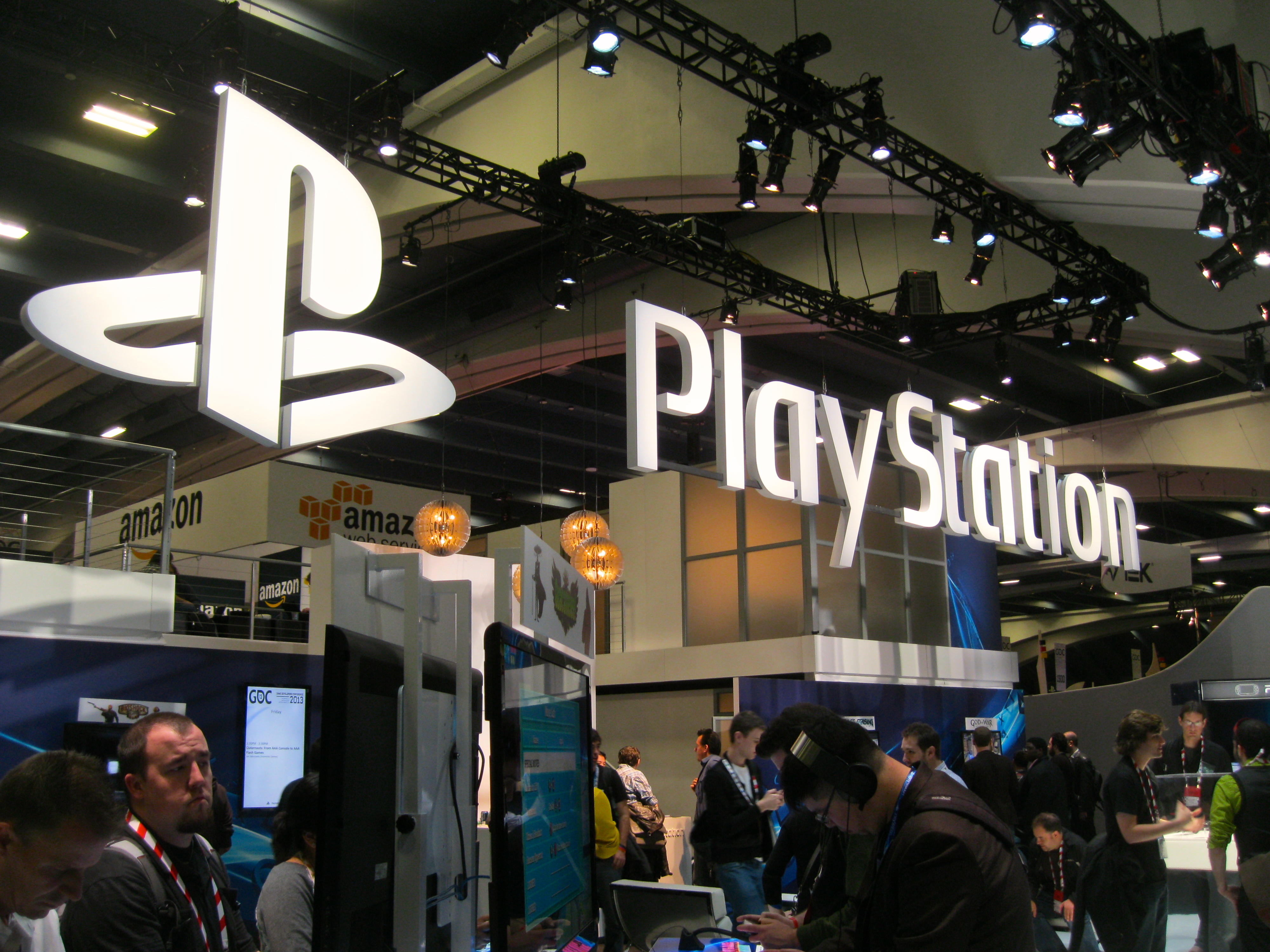 Sony made an incredible indie push at this year's GDC.
Sony made an incredible indie push at this year's GDC.
And yet, something was different. An ecstatic energy pervaded the hundreds of developers at the conference, as if they were anticipating something huge to happen.
Evolution was in the air, everywhere you'd go, there were symptoms of the nascent renaissance. You'd see it in Chris Hecker's wordless GDC rant, you'd see it at the crowdedness of this year's Experimental Gameplay Workshop, you'd see it in the pervasive frustration over gender exclusivity at the major talks. Nowhere was this more obvious than at the GDC Awards, of the 14 available categories, only two were won by AAA games, and at the IGF, a poverty-simulator named Cart Life by Richard Hofmeier won Grand Prize. Being around for the Friday of the conference, I was surprised to see that the keynote speakers at the Game Career Workshop weren't business executives for major publishers giving advice on how to get hired, but independent developers like Robert Boyd or Anna Anthropy.
The indie presence at GDC has been around for years, and while Ludus Florentis has been brewing in the waters a while now, I can't help but think that something massive happened this year at GDC. We've moved down that metaphorical junction point, all that's left to do now is to continue. All I have to say is that I'm grateful to be part of this moment.
Final Games.
After GDC, I returned to USC and joined a final game called Proving Grounds as a community manager. Given my experience dealing with blogs, Twitter feeds, and Facebook pages for projects in the past, I decided that I would make my most useful contributions doing community management for the project. Proving Grounds was an isometric action game focusing on emergent uses of the environment to resolve combat situations. Vines, explosive barrels, unstable floors, breakable walls, hanging lanterns and wires could all be used in combination with each other to damage enemies, and the relative weakness of the player's avatar would force creative use of the environment, making survival a battle of wits rather than numbers, channeling almost a Shadow of the Colossus-esque aesthetic. My job, make sure that the world recognizes the game as a unique and creative project.
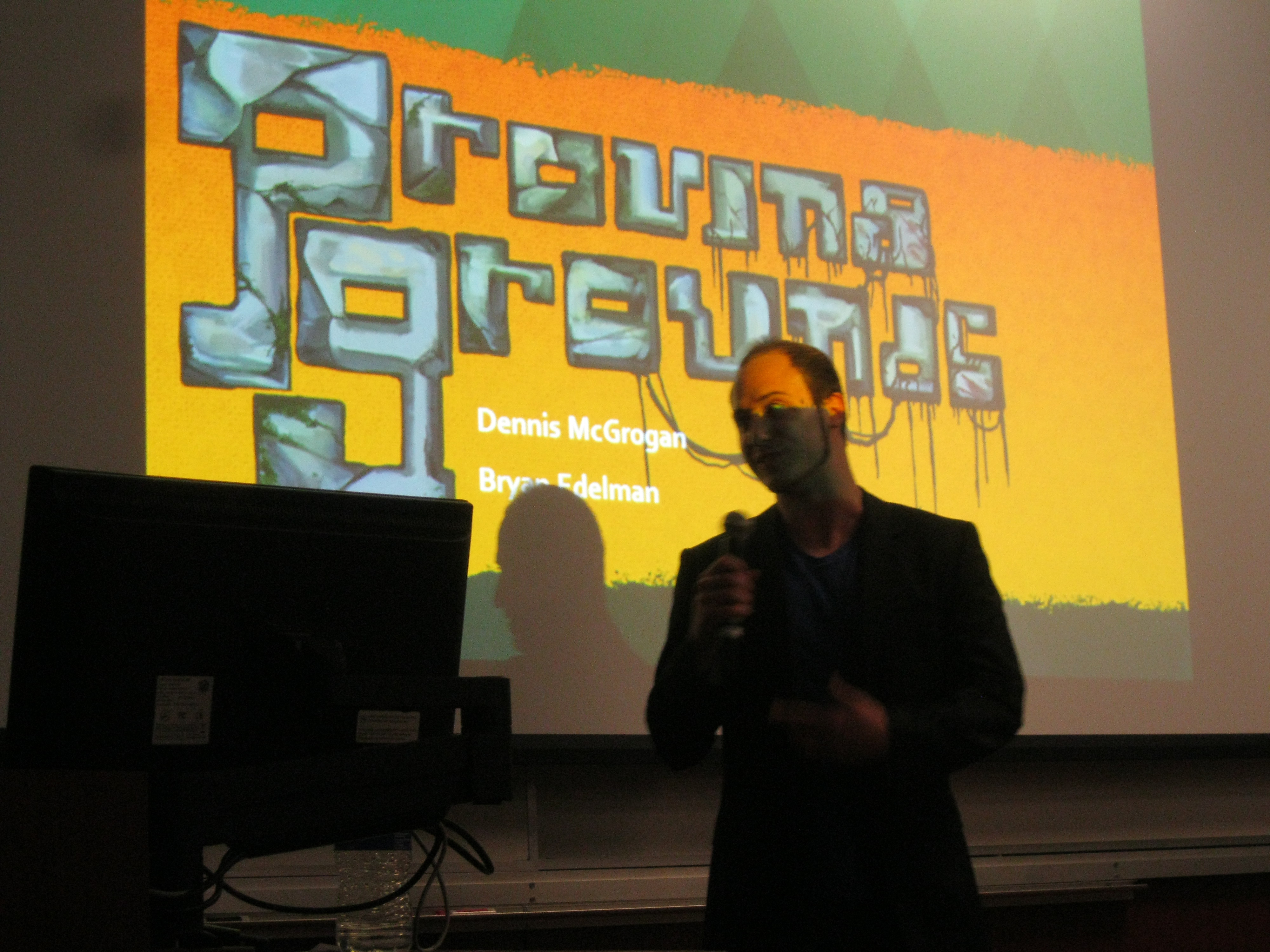 Pitchin'
Pitchin'
Proving Grounds was part of the Final Games sequence, which could be summed up as a microcosmic simulation of the game industry as a whole. Advanced Games students would assemble teams to prototype a game, build an audience, and pitch it to a panel of professors and industry professionals. Of the 17 or so games that were pitched, only seven were selected. Only by passing the extremely competitive pitch sequence would a project get greenlighted to be developed, the goal: exhibition at major festivals, creating the very best student games in the world. Two games from last year's sequence got major attention, Core Overload and Scrapyard were picked up by Intel and exhibited at their booth at GDC 2013. The Unfinished Swan and fl0w both owe their genesis to similar processes at USC.
All was going smoothly, I brought some great people onto the team, and each of the teams on the project worked incredibly efficiently. I connected with the community manager of thatgamecompany for advice on how to effectively create a public aesthetic around the game and effectively convey our vision to the world. Pitch day arrived, and the team's producer and director put out a stellar presentation selling our vision for the game effectively. Things seemed to be going well, and while each of the 17 games that were pitched were unique and innovative in their own right, I was pretty optimistic in our chances of being selected.
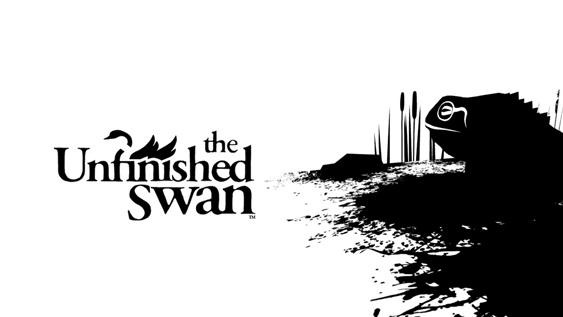 The Unfinished Swan owes its genesis to a similar program at USC Interactive.
The Unfinished Swan owes its genesis to a similar program at USC Interactive.
But we weren't chosen. The team disbanded and the project was shut down, the constituent members of the Proving Grounds team split up and joined the seven accepted projects, the process of which to join had grown substantially more competitive, requiring interviews and resumes of prospective contributors. Disappointment pervaded as I saw a number of very interesting projects like The Kingdom Cold vanish with their rejection from Final Games.
I ended up with a project codenamed Maestros, an experimental real-time strategy game directed by a number of undergraduates, the first of its kind at USC Games. I again, was brought on as a community manager, fitting for this kind of project, as Maestros sought to create a competitive scene inspired by e-sports, and effective community management would be critical to the game's success.
Camaraderie.
Oddly enough, I spent most of this semester sick. A nasty case of pnumonia that affected me over the course of four months, which I'm still currently shaking off. I think it might be in part stress-induced, but that doesn't matter. Antibiotics yo.
But I owe a lot to my friends for getting me through this. When I stubbornly held onto the notion that I'd be fine and my sickness would pass, they persuaded me to see a doctor. When I was too sick to leave the dorm for a week, they brought me soup and medicine. On the many weekends where I was too weak to do anything outside, they kept me company and hanged out with me. I think we blew through the entirety of Avatar: The Last Airbender in a number of marathonic sittings (probably one of the best animated shows I've ever seen). But for that, my awesome friends, I thank you all.
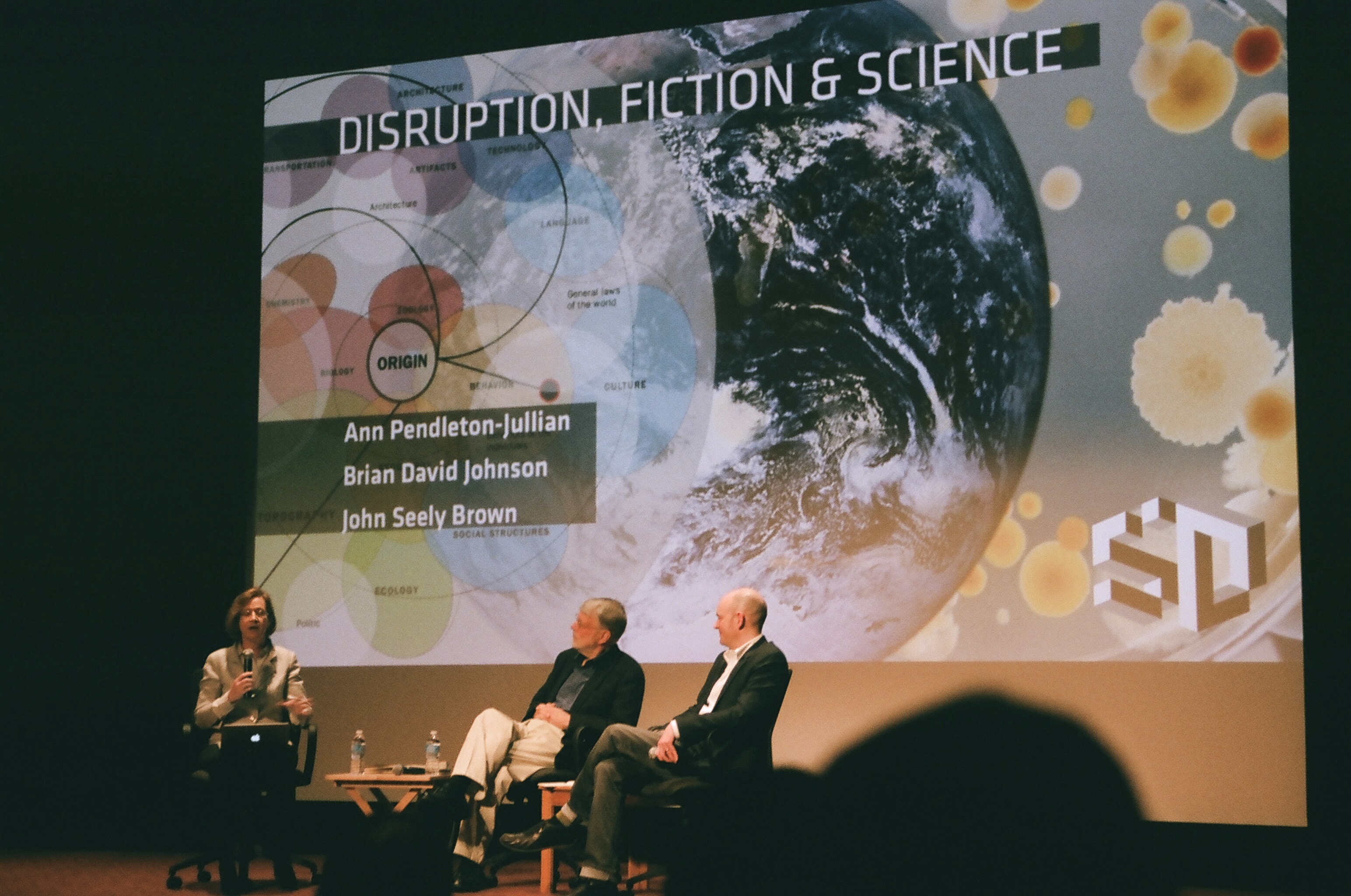 at the 5D conference
at the 5D conference
When I was strong enough to get out of the dorm for a weekend, I ended up at the 5D worldbuilding conference with my good friends Catherine and Esteban, a SCA-sponsored event utilizing collaborative imagination to project the future given different sociopolitical, economic, and environmental circumstances. Our job at this conference was to create a fictional world in a day, a 2020 Los Angeles informed by the success of the Occupy Wall Street movement, the replacement of snaking highways with miles of elevated rails, and a substantial rise in ocean levels. On our team was Jenova Chen.
Yes, that Jenova Chen. Through all the interviews I read with him, I finally got to see his leadership style in person, forceful and direct and more than willing to redirect the entire conversation towards a different, more interesting direction. Working with the wonderful Richard Lemarchand and a number of upperclassmen from IMD, we built a wildly detailed and imaginative vision of a realistic future. Certainly one of the more unusual and interesting weekends of the year.
Aside from that, I've found myself doing an incredible number of things with some awesome friends. I've competed at the 2013 Global Game Jam, watched The Who in concert at LA Live, met Nolan Bushnell -the father of digital gaming, as well as Louis Zamperini -a personal hero of mine, attended a screening of Scott Pilgrim vs. The World with the cast and director, danced to experimental interactive digital installation artwork, got an article published on Gamasutra, set out plans for an innovative new gaming channel, and unsuccessfully attempted to crash a virtual world's economy.
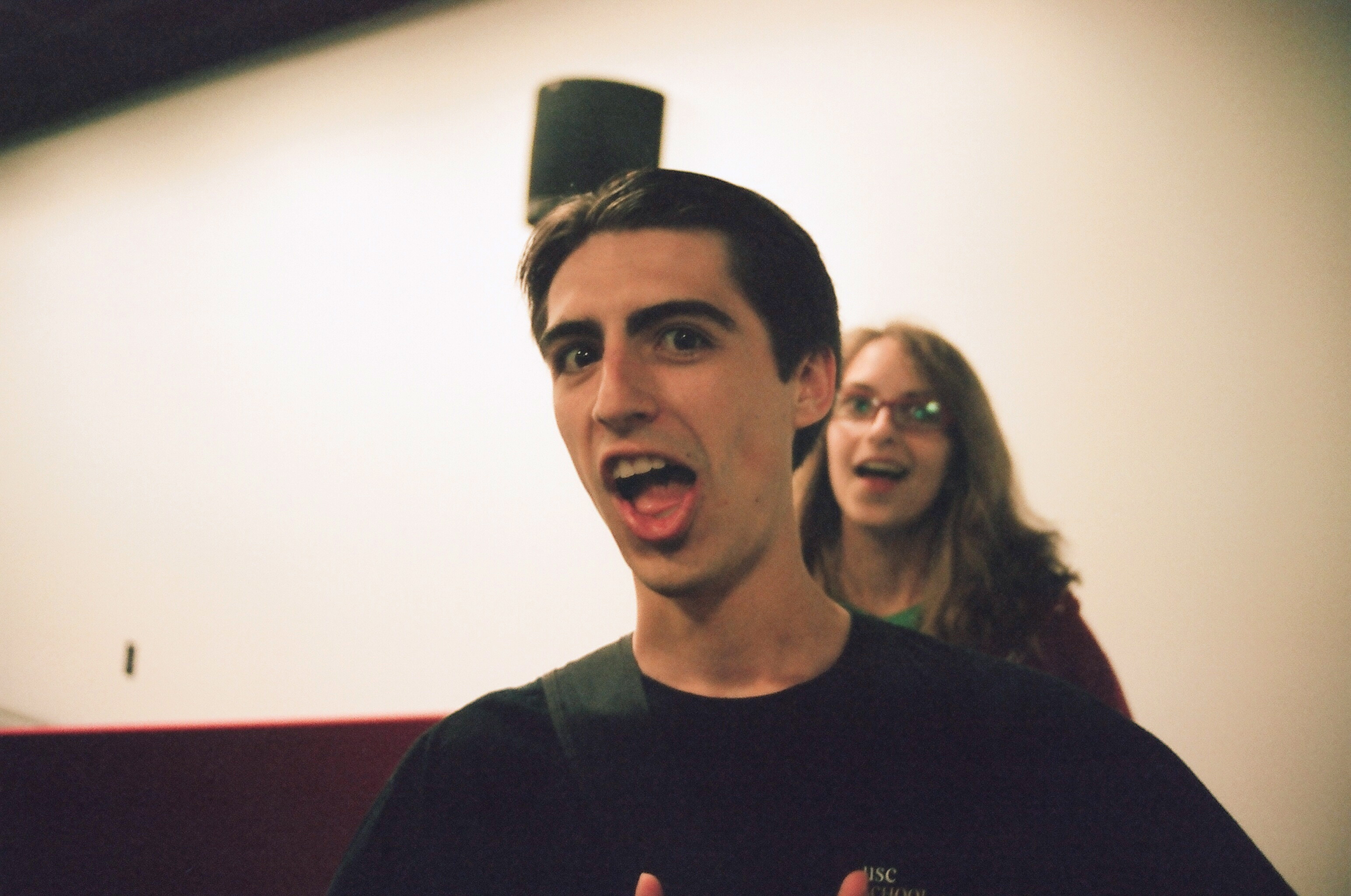 I had an idea for a photobombing game. This is us prototyping it.
I had an idea for a photobombing game. This is us prototyping it.
Ludus Florentis.
Maybe this is the best time in history to enter gaming. A confluence of bold new ideas, and a consumer base hungry for something different welcomes an incredible disruption to preconceived notions of what the game industry represents. The big ships of today are beginning to reach over to academia, game jam, and the indie communities, indicating that having the most open, accessible platform will determine the outcome of the next console cycle, which will mean only incredible good for our medium. Being part of an incredible community at USC Games, I live amongst the friends, mentors, and infections energy that will enact that change we wish to see in the world.
Richard Lemarchand referred to our present moment as a "ludic renaissance" at a division meeting. Self-centered concerns about this career aside, I can't wait to see the outcome of this chapter in history.
A tidal wave has come, let's ride it.
About the Author(s)
You May Also Like

